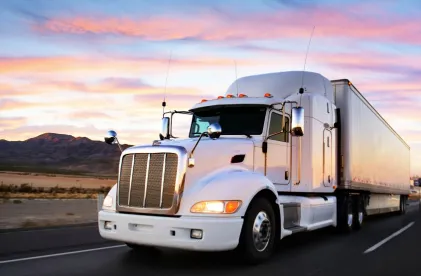Legislative Activity
No Trucking Rider in Continuing Resolution
The current fiscal year ends on September 30, and Congress will need to pass a Continuing Resolution (CR) to continue funding the federal government. The Senate is expected to vote on a CR that Majority Leader Mitch McConnell (R-KY) introduced last week that does not include a transportation policy rider impacting the 34-hour restart rule in hours of service regulations proposed by the Federal Motor Carrier Safety Administration. If the rider is not included in the CR, any hours of service rule modifications will have to wait for the “lame-duck” session after the federal elections on November 8.
This Week’s Hearings:
-
On Tuesday, September 27, the House Small Business Subcommittee on Investigations, Oversight, and Regulations Subcommittee will hold a hearing titled “Opportunity Rising: the FAA’s New Regulatory Framework for Commercial Drone Operations.”
-
On Wednesday, September 28, the House Transportation and Infrastructure Subcommittee on Economic Development, Public Buildings, and Emergency Management will hold a hearing titled “Department of Veterans Affairs Leases: Is the VA Over-Paying for Leased medical Facilities?”
Regulatory Activity
NHTSA Releases Automated Vehicle Guidance
On September 20, 2016, the National Highway Traffic Safety Administration (NHTSA) released its highly anticipated guidelines for the design, manufacture, and regulation of autonomous vehicles (read the related Policy Fact Sheet). Although it recognized both the inevitability of this new technology and its potential for improving vehicle safety, personal mobility and city infrastructure, NHTSA also asserted its mandate to ensure that autonomous vehicles are introduced and deployed in a manner that protects the public. While the guidelines are focused on highly automated vehicles (HAV) – vehicles that can take full control of the driving task – some of NHTSA’s guidance may also apply to driver-assistance systems that are already on the market.
NHTSA sees enormous potential for increased safety through the use of automated vehicles, and is expected to regularly review and revise this guidance to reflect changes in technologies and state regulations.




 />i
/>i

